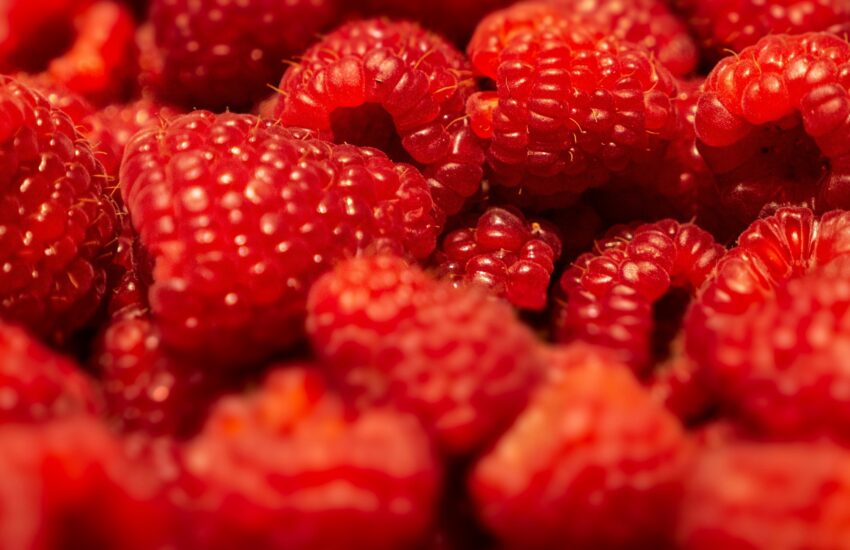High-fiber foods are excellent choices for supporting weight loss and overall health due to their ability to promote satiety, stabilize blood sugar levels, and improve digestive health. Here is a comprehensive overview of 15 high-fiber foods for Weight Loss suggested by Mohit Tandon Illinois, along with their benefits and how they can be incorporated into your diet:
1. Chia Seeds
Chia seeds are an excellent addition to a weight loss diet due to their exceptional fiber content. Just two tablespoons of chia seeds deliver about 10 grams of fiber, which is roughly 40% of the daily recommended intake for adults. This high fiber content, particularly soluble fiber, forms a gel-like substance in the digestive tract, expanding and increasing feelings of fullness. This sensation of satiety helps reduce overall calorie consumption by curbing hunger and decreasing the likelihood of snacking between meals. Furthermore, chia seeds are packed with omega-3 fatty acids, which have been linked to improved metabolic function and potential fat loss. Their versatility allows them to be easily incorporated into various dishes, such as smoothies, oatmeal, and salads, enhancing both the texture and nutritional value of meals. – Mohit Tandon Illinois
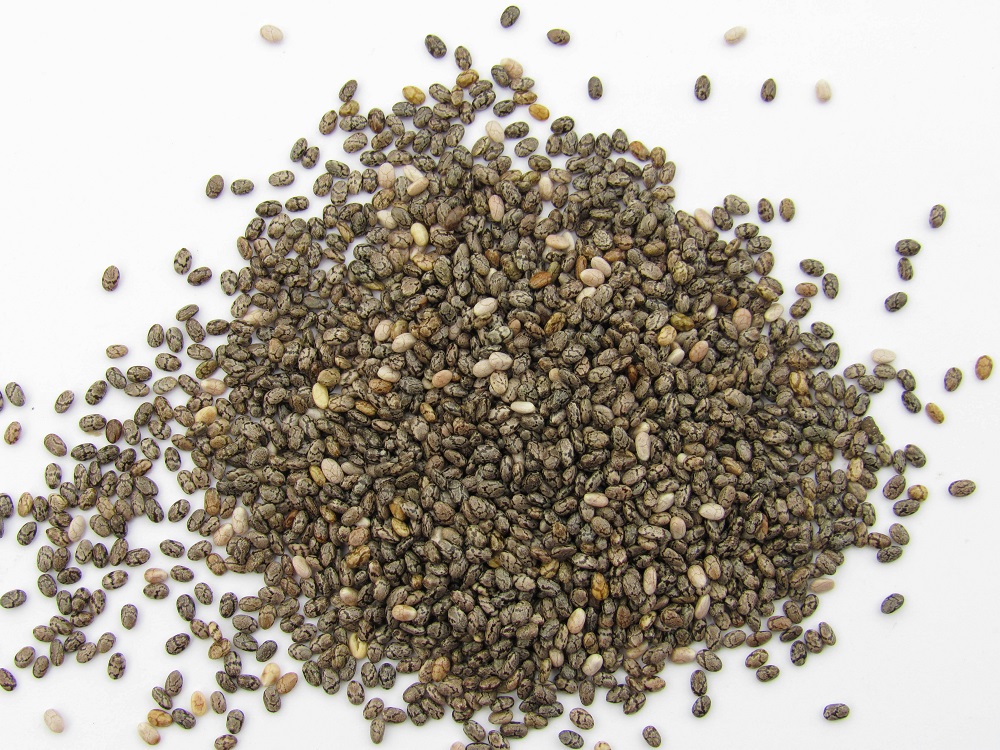
2. Lentils
Lentils are a nutrient-dense legume that supports weight loss through their high fiber content. A single cup of cooked lentils provides about 16 grams of fiber, which is significant for maintaining digestive health and promoting a feeling of fullness. The soluble fiber in lentils slows the absorption of sugars, which helps to stabilize blood sugar levels and prevent sudden spikes in hunger. This steady blood sugar control contributes to reduced calorie intake and prevents overeating. Additionally, lentils are a rich source of plant-based protein, which further supports satiety and muscle maintenance. They also provide essential nutrients like iron and folate, contributing to overall health while aiding in weight management.

3. Oats
Oats are renowned for their high content of beta-glucan, a type of soluble fiber known for its health benefits. A typical serving of cooked oats provides about 4 grams of fiber, which helps regulate blood sugar levels and extend feelings of fullness. This extended satiety can lead to reduced snacking and lower overall calorie intake. Oats are also a low-calorie, nutrient-rich food that delivers important vitamins and minerals such as B-vitamins, iron, and magnesium. Their ability to absorb liquid and expand in the stomach helps bulk up meals, providing a satisfying portion without excessive calories. Oats can be enjoyed in various forms, including overnight oats, oatmeal, and baked goods, making them a versatile and effective choice for weight management.
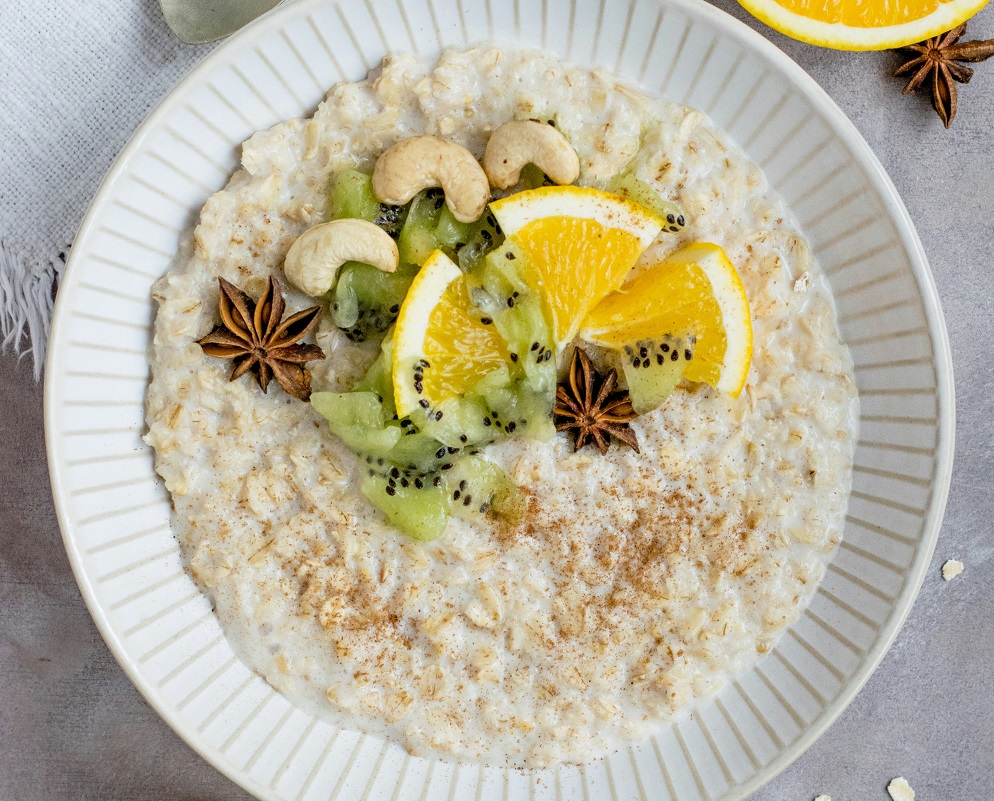
4. Apples
Apples are a convenient and healthy snack choice that aids in weight loss due to their fiber content. A medium-sized apple contains approximately 4 grams of fiber, mostly in the form of pectin, a soluble fiber that slows digestion and enhances feelings of fullness. This helps to reduce overall calorie intake by curbing hunger and minimizing the need for additional snacks. Apples are also low in calories and have a high water content, which contributes to their filling nature. Additionally, apples provide antioxidants like quercetin, which can support cardiovascular health and reduce inflammation. Their natural sweetness makes them a healthier alternative to sugary snacks, further supporting weight loss efforts.

5. Broccoli
Broccoli is a highly nutritious vegetable that supports weight loss through its fiber content and low calorie count. One cup of cooked broccoli contains around 5 grams of fiber, which helps to promote satiety and regulate digestion. The fiber in broccoli contributes to feelings of fullness and helps stabilize blood sugar levels, which can prevent overeating. Broccoli is also rich in vitamins and minerals, including vitamin C, vitamin K, and folate. The presence of antioxidants and anti-inflammatory compounds, such as sulforaphane, adds to its health benefits, supporting overall well-being and aiding in weight management. Its low calorie density makes it an ideal food for those looking to reduce calorie intake while still enjoying a nutritious and filling meal.
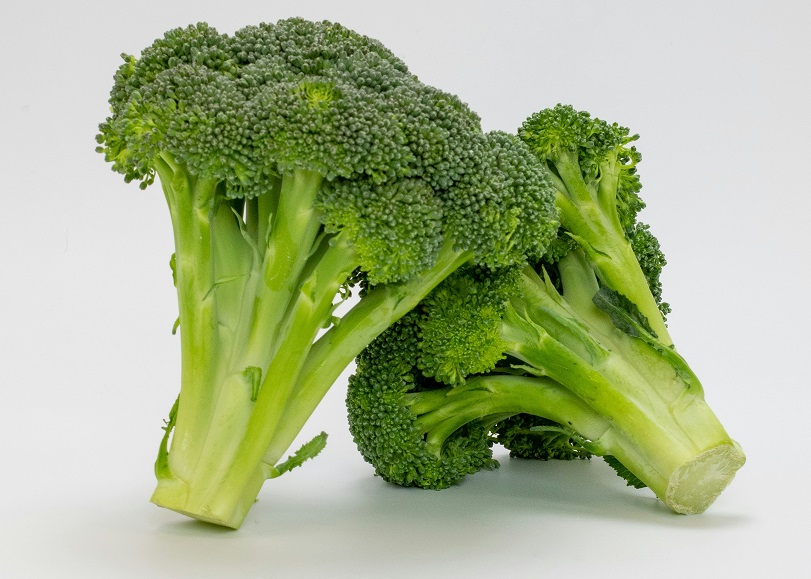
6. Beans
Beans, including varieties like black beans, kidney beans, and chickpeas, are excellent sources of dietary fiber. A cup of cooked beans provides approximately 13-15 grams of fiber, which is crucial for effective weight management. The high fiber content helps to enhance feelings of fullness, which can reduce overall calorie consumption. Beans are also rich in protein, which supports muscle maintenance and contributes to satiety. Additionally, beans provide essential nutrients such as iron, potassium, and folate. Their versatility allows them to be included in various dishes, from salads to stews, making them a practical and nutritious choice for weight loss. – Mohit Tandon Illinois
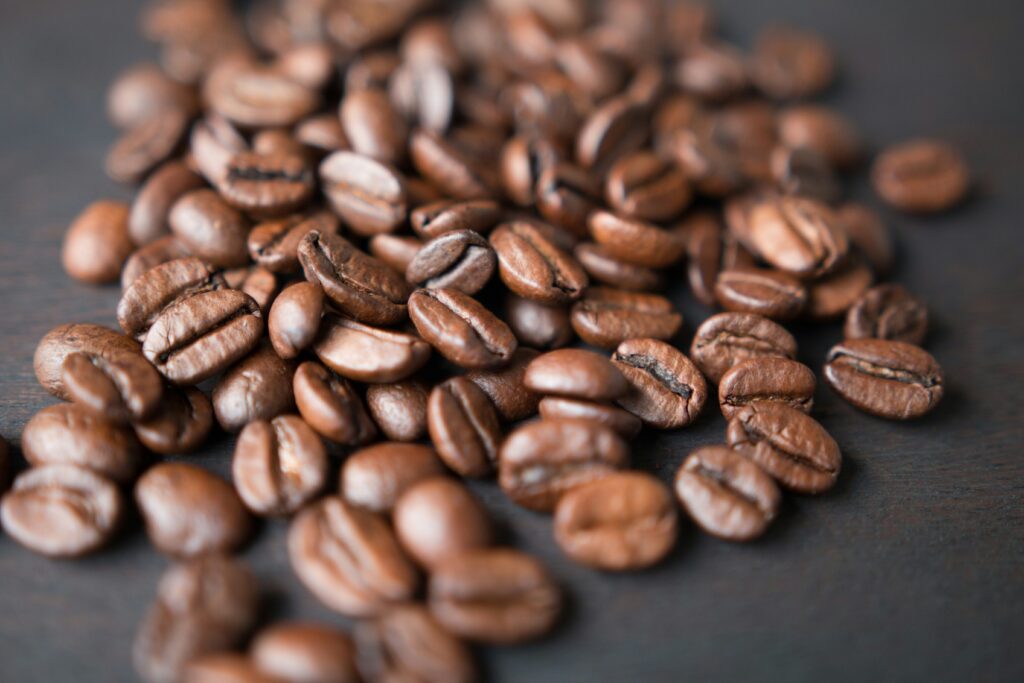
7. Pears
Pears are a delicious fruit that offers a significant amount of dietary fiber, with one medium pear providing about 5-6 grams of fiber. The fiber in pears, primarily in the form of pectin, helps to slow digestion and promote a feeling of fullness, which can aid in weight management. Pears are also low in calories and have a high water content, which enhances their filling nature. The fruit is rich in antioxidants and vitamins, such as vitamin C, which support overall health. Eating pears as part of a balanced diet can help reduce calorie intake by curbing hunger and providing a satisfying, low-calorie snack option.
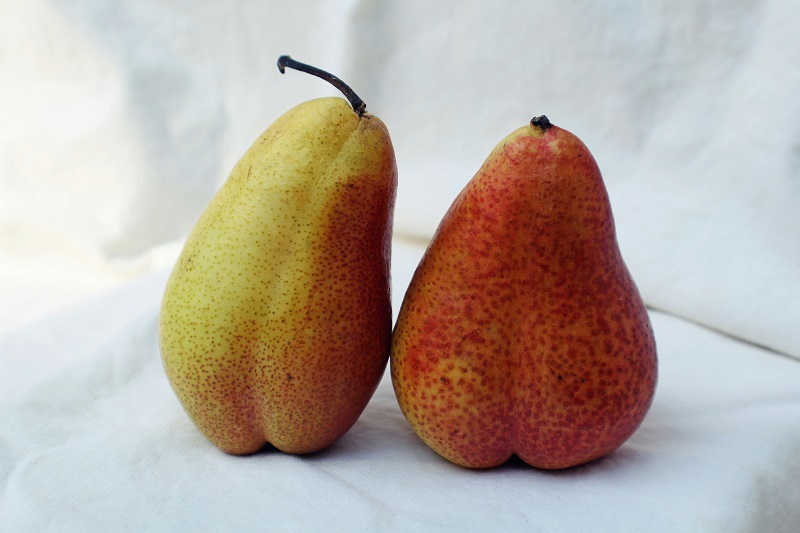
8. Whole Grains
Whole grains, such as brown rice, barley, and whole wheat, are excellent sources of dietary fiber. A cup of cooked brown rice or barley provides approximately 4-6 grams of fiber. It supports weight management by promoting fullness and regulating digestion. Whole grains are also rich in essential nutrients, including B-vitamins, iron, and magnesium. The fiber in whole grains helps to stabilize blood sugar levels, which can prevent overeating and reduce calorie intake. Incorporating a variety of whole grains into your diet can provide a range of flavors and textures while contributing to effective weight management.
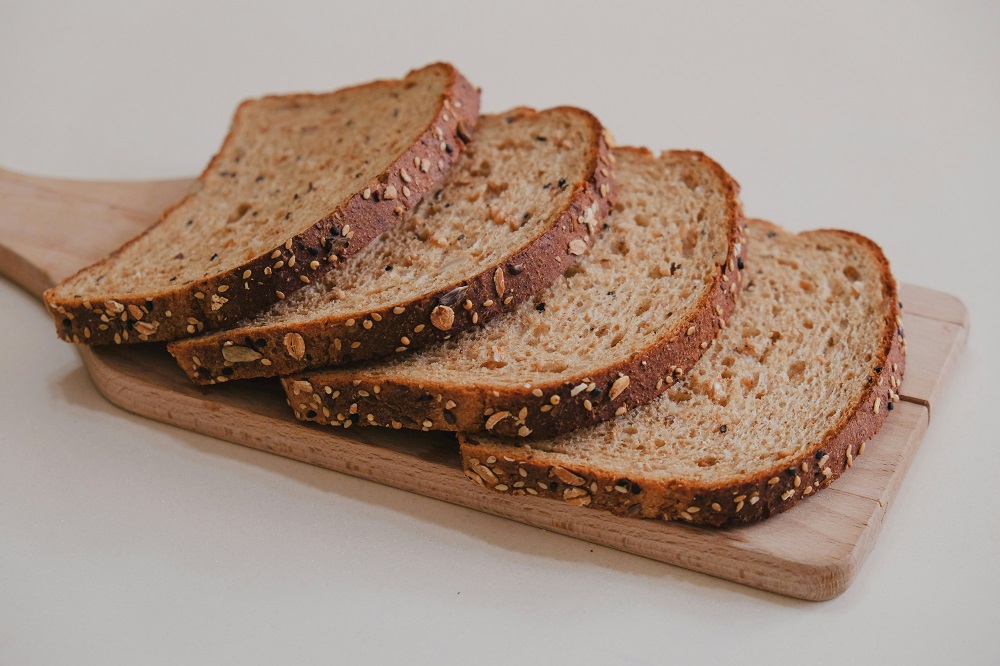
9. Avocados
Avocados are unique among fruits due to their high healthy fat content, but they also provide a notable amount of fiber. One avocado contains around 10 grams of fiber, which aids in promoting satiety and reducing overall calorie consumption. The fiber in avocados is both soluble and insoluble, contributing to healthy digestion and prolonged fullness. Avocados are also rich in monounsaturated fats, which can support metabolic health and potentially aid in weight loss. Additionally, they provide essential nutrients such as potassium, vitamin E, and folate, making them a nutritious addition to any weight management plan.
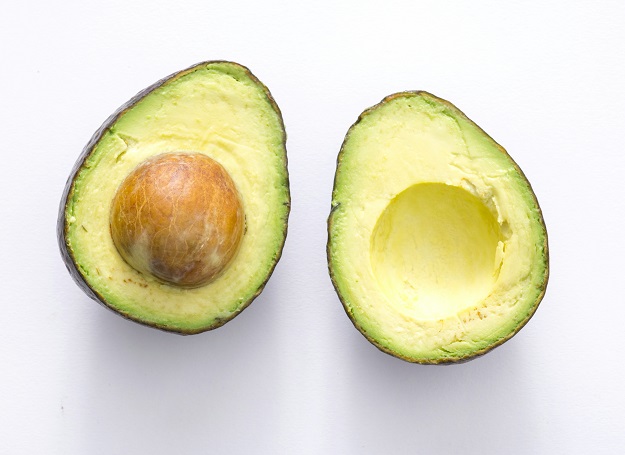
10. Sweet Potatoes
Sweet potatoes are a nutritious root vegetable that is high in fiber, with one medium-sized sweet potato providing about 4 grams of fiber. The fiber in sweet potatoes, primarily in the form of both soluble and insoluble fibers, helps to promote feelings of fullness and regulate digestion. Sweet potatoes are also a low-calorie, nutrient-dense food, rich in vitamins A and C, potassium, and antioxidants. Their natural sweetness can satisfy cravings for sugary foods while providing a healthier alternative. Including sweet potatoes in your diet can enhance satiety and contribute to effective weight management.
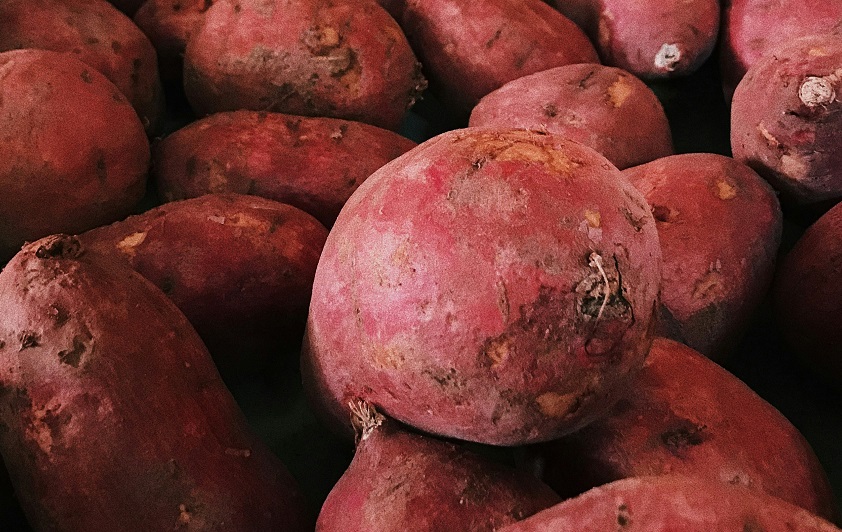
11. Brussels Sprouts
Brussels sprouts are a cruciferous vegetable packed with fiber, with one cup of cooked Brussels sprouts containing about 4 grams of fiber. The fiber in Brussels sprouts helps to promote fullness and support healthy digestion, which can aid in weight loss. Brussels sprouts are also low in calories and rich in vitamins K and C, as well as antioxidants that support overall health. Their unique flavor and versatility allow them to be prepared in various ways, such as roasting or steaming, making them an excellent addition to a weight management diet.
12. Raspberries
Raspberries are a berry that provides a significant amount of fiber, with one cup of raspberries containing about 8 grams of fiber. The high fiber content helps to promote a feeling of fullness and regulate blood sugar levels, which can contribute to weight loss. Raspberries are also low in calories and high in antioxidants, including vitamin C and quercetin, which support overall health and reduce inflammation. Their tart flavor and natural sweetness make them a delicious and nutritious snack or addition to various dishes, such as salads or yogurt.
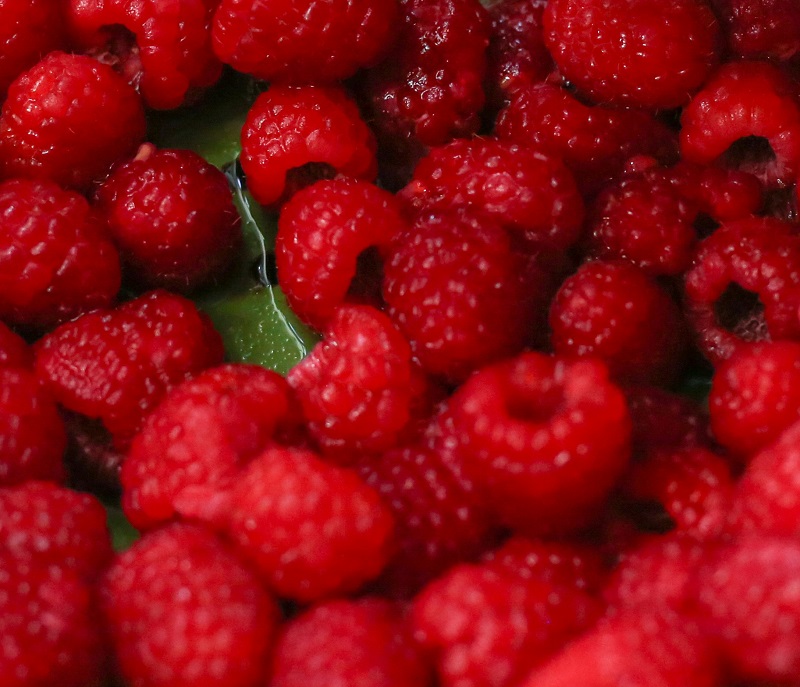
13. Artichokes
Artichokes are a fiber-rich vegetable, with one medium artichoke providing approximately 7 grams of fiber. The fiber in artichokes, particularly in the form of inulin, supports healthy digestion and enhances feelings of fullness. Artichokes are also low in calories and packed with antioxidants, vitamins C and K, and minerals such as magnesium and potassium. Their unique flavor and texture make them a versatile ingredient in various recipes, contributing to a satisfying and nutritious diet that supports weight management.

14. Spinach
Spinach is a leafy green vegetable that provides a moderate amount of fiber, with one cup of cooked spinach containing about 4 grams of fiber. The fiber in spinach helps to promote satiety and support healthy digestion, which can aid in weight management. Spinach is also low in calories and rich in essential nutrients, including vitamins A and C, iron, and calcium. The versatility of spinach allows it to be incorporated into a variety of dishes, from salads to smoothies, making it an easy and nutritious choice for those looking to manage their weight.
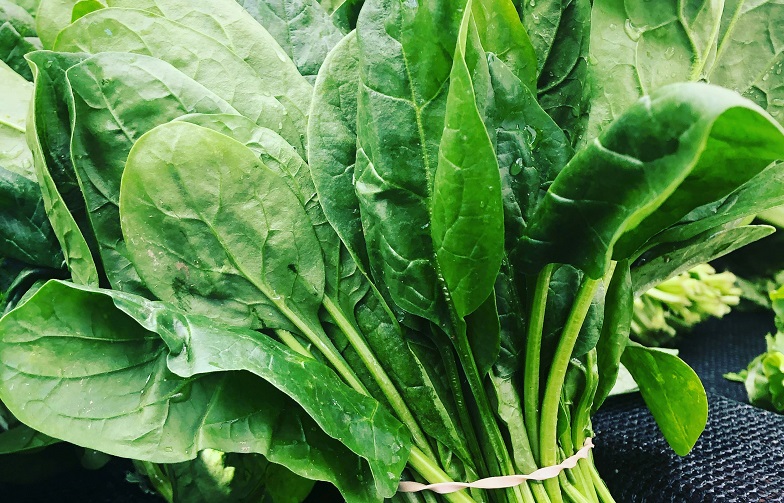
15. Edamame
Edamame, young soybeans, are a fiber-rich legume that supports weight loss through their high fiber and protein content. One cup of cooked edamame provides approximately 8 grams of fiber and 17 grams of protein. The combination of fiber and protein helps to promote satiety and regulate blood sugar levels. It can contribute to reduced calorie intake and effective weight management. Edamame is also a good source of essential nutrients, including vitamins K and C, iron, and calcium. Its versatility allows it to be enjoyed as a snack or added to various dishes, such as salads or stir-fries.
